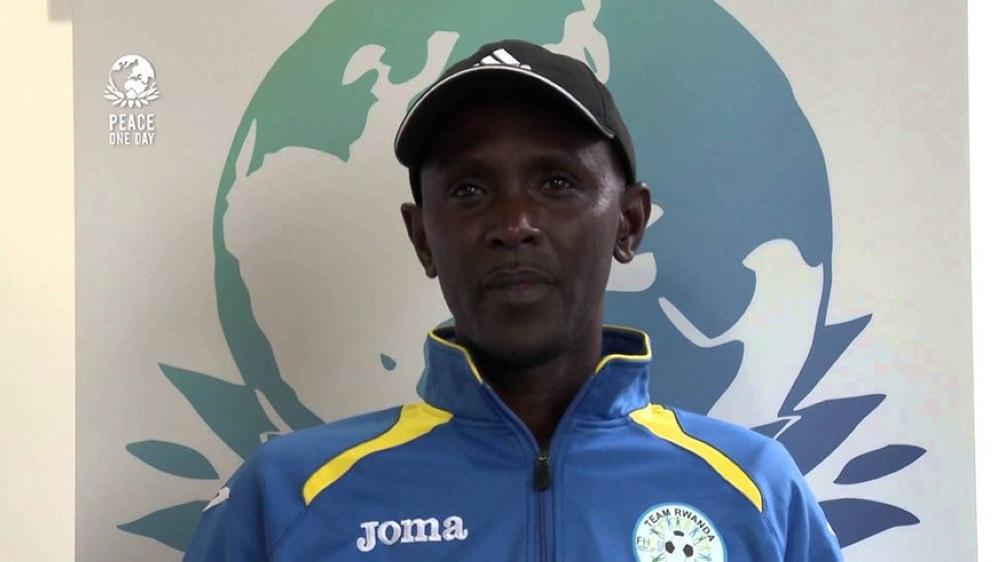Africa-Press – Rwanda. While some survived by fleeing for their lives and others were rescued by the Rwandan Patriotic Front (RPF), Eugène Eric Murangwa’s survival was uniquely tied to his fame as a goalkeeper for Rayon Sports.
Murangwa lived in the Nyamirambo Sector of Kigali, in a neighborhood called ‘Bauba’. He will never forget April 7, 1994 when ex-FAR soldiers stationed at Mount Kigali, began entering houses and killing people that afternoon.
“They entered our house, where I lived with a friend. They ordered us to lie down, but one of them saw my pictures and immediately recognised me. He then asked if I was ‘Toto,’ which was my nickname at the time, being the youngest player to join Rayon Sports,” Murangwa recalls.
The soldiers left after murdering their landlord, but Murangwa was spared due to his fame as a goalkeeper for Rayon Sport.
At 18, the young goalkeeper sought refuge with various friends within the football community as the genocide continued to unfold.
After fleeing from one place to another, in May 1994, Murangwa surprisingly found sanctuary in the home of Jean-Marie Vianney Mudahinyuka, the leader of the Interahamwe in Nyamirambo.
Mudahinyuka sheltered Murangwa for weeks despite his name being on the Interahamwe’s list, simply because he was a fan of Rayon Sports.
“I didn’t believe that he could hide me because of being a Rayon sports fan. He felt honoured to hide a goalkeeper of his beloved team,” Murangwa said.
Football not only saved Murangwa’s life but also prevented his teammates from participating in the killings during the Genocide.
Football activities were largely suspended from 1990 until a local football match in November 1994 – the first public event four months after the Genocide ended in July.
Murangwa witnessed that despite being a survivor due to his fame as football player, it not only saved him but also his family, although his young brother tragically died during the Genocide.
The unifying role of football for Rwandans after the horrific events inspired Murangwa to use the sport to positively influence young people.
He founded the Ishami Foundation, a charity organisation that leverages the power of sport and storytelling to promote equality, tolerance, and lasting peace in Rwanda and the UK.
Murangwa is currently in Rwanda and, as a former national team player, he is also a member of the Former Amavubi Players Association (FAPA).
For More News And Analysis About Rwanda Follow Africa-Press






